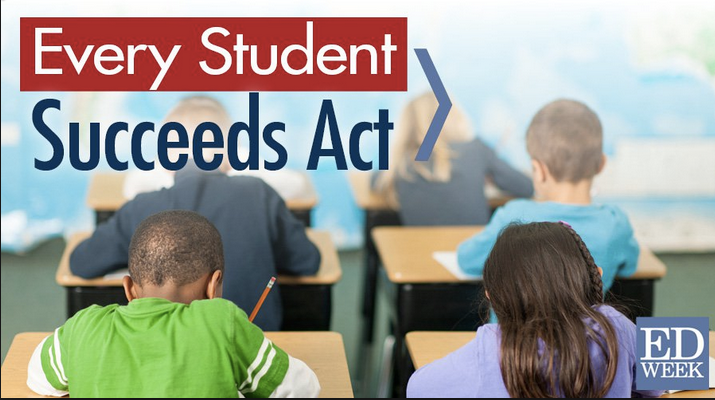Curator note: For those of us in the field of education, this action is a way to make a political point, to mislead the public about Federal laws related to education, provide incorrect definitions of topics and propose ideas that are not new, already in place. The article is correct in that this study will likely not have a big impact because there has always been strong support at the Federal level for local control. Congress passed bipartisan legislation called the Every Student Succeed Act (ESSA). The Department of Education then requested and received extensive comments from the public that became the basis for the ESSA regulations that were developed. The essence of this executive order action is designed to question the collective wisdom of bipartisan and public support for the ESSA. A common theme for the latest stream of executive orders is to request a study. This approach can create illusions and photo opportunities but may not have substance.
Donald Trump plans to issue an executive order directing U.S. Secretary of Education Betsy DeVos to conduct a study to “determine where the federal government has unlawfully overstepped overstepped on state and local control,” a White House official said, The executive order is “intended to return authority to where Congress intended—state and local entities.”
One such report is unlikely to have a dramatic impact on K-12 education policy. But the directive is a way for the Trump administration to make it clear it supports local control of schools.
In response to the executive order, a task force at the department, led by Robert Eitel, a senior adviser to the secretary, will take a hard look at all of the K-12 regulations put out by the past administration and decide which step on local control, a senior White House aide said. After 300 days, the department will release a report on its findings.
Read full Education Week article
Trump Orders Review of Education Policies to Bolster Local Control
But other observers said the order stands to have little impact on large-scale reforms already underway, such as the Every Student Succeeds Act, and bedrock laws like the Individuals with Disabilities Act, which governs the education of special education students. And the Common Core standards, which neither Ms. DeVos nor Mr. Trump supports, were adopted by states at their own volition.
“The bottom line is that the law is still the law, and an executive order can’t override that,” said Kelly McManus, interim director of legislative affairs at the Education Trust, a Washington think tank.
Ms. McManus said the organization is also concerned about the Education Department’s watchdog role being diminished.
“The good states need the cover of the federal government, and the bad actors need to be pushed by the federal government,” she said.
Where the order could have the most impact is in the area of civil rights, in which the Obama administration issued a series of guidance documents.
One of the Trump administration’s first acts was rescinding earlier Education Department guidelines that urged states to allow transgender students to use bathrooms corresponding with their gender identity.
Early ESSA State Plans Don’t Do Enough To Signal That All Students Are Important
By next week, sixteen states and the District of Columbia will have submitted plans to the U.S. Department of Education to meet their obligations under the Every Student Succeeds Act. These publicly available documents describe how states will satisfy a number of ESSA’s requirements, including those concerning testing, school improvement, and accountability. Unfortunately, just as states mostly squandered ESSA’s school improvement flexibility, most of these first seventeen plans don’t do enough to hold schools accountable for meeting the educational needs of high achievers—especially those growing up in poverty.
ESSA affords states a critical opportunity to right many wrongs of No Child Left Behind. A strong accountability system signals to schools that the progress of all students is important, but NCLB failed at this by creating incentives for schools to focus their energy almost exclusively on helping low-performing students get over a modest proficiency bar, while neglecting those who were likely to pass state reading and math tests regardless of what happens in the classroom. This may be why the United States has seen significant achievement growth and improved graduation rates for its lowest performers over the last twenty years but lesser gains for its top students.
Read full article from Thomas B. Fordham Institute




